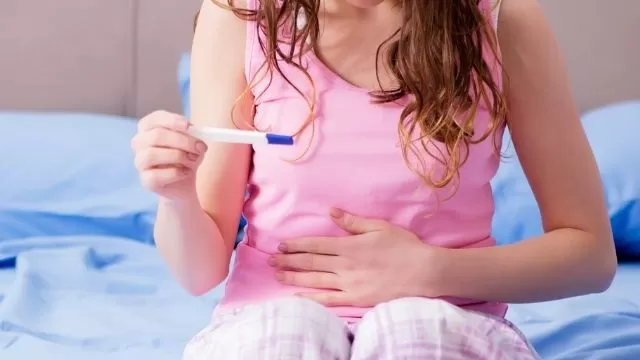Introduction
Female infertility is a complex and often emotionally challenging condition that affects millions of women worldwide. While the inability to conceive can be distressing, understanding the symptoms and underlying causes of female infertility is the first step towards seeking appropriate treatment and support. In this comprehensive guide, we explore the various factors contributing to female infertility, from physiological issues to lifestyle factors, and provide insights into symptoms, diagnosis, and potential treatment options.
Symptoms of Female Infertility

- Irregular Menstrual Cycles: Irregular periods or the absence of menstruation (amenorrhea) can be indicative of hormonal imbalances or reproductive disorders that may affect fertility.
- Painful Periods: Severe menstrual cramps (dysmenorrhea) or pelvic pain during menstruation may suggest conditions such as endometriosis or pelvic inflammatory disease (PID), which can impact fertility.
- Abnormal Bleeding: Unusual bleeding between periods or during intercourse may signal underlying gynecological issues that could affect fertility.
- Hormonal Imbalances: Symptoms such as excessive facial hair growth (hirsutism), acne, or changes in libido may indicate hormonal imbalances that can interfere with ovulation and fertility.
- Recurrent Miscarriages: Multiple miscarriages, especially in the first trimester, may indicate underlying reproductive issues that require investigation and treatment.
Common Causes of Female Infertility
- Ovulation Disorders: Irregular or absent ovulation is a leading cause of female infertility. Conditions such as polycystic ovary syndrome (PCOS), hypothalamic dysfunction, and premature ovarian failure (POF) can disrupt ovulation.
- Fallopian Tube Damage: Blocked or damaged fallopian tubes due to infections, pelvic surgery, or endometriosis can prevent the egg from reaching the uterus and hinder fertilization.
- Uterine Abnormalities: Structural abnormalities of the uterus, such as fibroids, polyps, or congenital malformations, can interfere with implantation and pregnancy.
- Endometriosis: Endometriosis, a condition in which uterine tissue grows outside the uterus, can cause inflammation, scarring, and adhesions that impair fertility.
- Age-related Factors: Declining ovarian reserve and egg quality with advancing age can reduce fertility and increase the risk of miscarriage and chromosomal abnormalities.
- Pelvic Inflammatory Disease (PID): Infections of the reproductive organs, such as PID caused by sexually transmitted infections (STIs), can lead to scarring and damage that affects fertility.
- Autoimmune Disorders: Autoimmune conditions affecting the reproductive system, such as antiphospholipid syndrome (APS) or thyroid disorders, can increase the risk of infertility and pregnancy complications.
- Lifestyle Factors: Factors such as smoking, excessive alcohol consumption, obesity, and poor nutrition can negatively impact fertility by affecting hormone levels, ovulation, and reproductive health.
Diagnosis and Evaluation
Diagnosing female infertility typically involves a comprehensive evaluation of medical history, physical examinations, and diagnostic tests. These may include:

- Ovulation Tracking: Monitoring menstrual cycles and ovulation through methods such as basal body temperature charting, ovulation predictor kits, or transvaginal ultrasound.
- Hormonal Assessment: Blood tests to evaluate hormone levels, including follicle-stimulating hormone (FSH), luteinizing hormone (LH), estradiol, and anti-Müllerian hormone (AMH).
- Imaging Studies: Imaging tests such as ultrasound, hysterosalpingography (HSG), or laparoscopy to assess the uterus, fallopian tubes, and ovaries for structural abnormalities or blockages.
- Hysteroscopy: A minimally invasive procedure to examine the inside of the uterus for polyps, fibroids, or other abnormalities.
- Ovarian Reserve Testing: Assessing ovarian reserve through tests such as antral follicle count (AFC), ovarian ultrasound, or ovarian reserve blood tests (AMH, inhibin B).
- Genetic Screening: Screening for genetic abnormalities or chromosomal disorders that may affect fertility or pregnancy outcomes.
Treatment Options for Female Infertility
The appropriate treatment for female infertility depends on the underlying cause and individual circumstances. Treatment options may include:
- Ovulation Induction: Medications such as clomiphene citrate or letrozole to stimulate ovulation in women with ovulatory disorders.
- Assisted Reproductive Technologies (ART): Procedures such as in vitro fertilization (IVF), intracytoplasmic sperm injection (ICSI), or intrauterine insemination (IUI) to facilitate conception.
- Surgery: Surgical interventions to correct structural abnormalities, remove uterine fibroids or polyps, or repair blocked fallopian tubes.
- Lifestyle Modifications: Adopting healthy lifestyle habits such as maintaining a balanced diet, regular exercise, quitting smoking, and limiting alcohol intake to optimize fertility.
- Hormone Therapy: Hormonal treatments to regulate menstrual cycles, correct hormonal imbalances, or support ovarian function.
- Genetic Counseling: Counseling and genetic testing for couples with a history of genetic disorders or recurrent pregnancy loss to assess the risk of passing on genetic conditions to offspring.
Support and Coping Strategies
Dealing with infertility can be emotionally challenging, and it’s essential to seek support and coping strategies to navigate the journey. Consider:

- Seeking Emotional Support: Joining support groups, seeking counseling, or connecting with others who have experienced infertility can provide valuable emotional support and validation.
- Self-care Practices: Engaging in self-care activities such as mindfulness, yoga, meditation, or creative outlets can help reduce stress and promote emotional well-being.
- Communication with Partner: Open and honest communication with your partner about your feelings, fears, and hopes can strengthen your relationship and provide mutual support.
- Exploring Alternative Paths to Parenthood: Exploring alternative paths to parenthood such as adoption, surrogacy, or donor conception can offer new possibilities for building a family.
Conclusion:
Female infertility is a complex and multifaceted condition that can have profound physical, emotional, and psychological impacts. By understanding the symptoms, causes, and treatment options for female infertility, individuals can empower themselves to make informed decisions and seek appropriate support and medical care. With advances in reproductive medicine and ongoing research, there is hope for many individuals experiencing infertility to achieve their dream of parenthood. Remember, you are not alone, and there are resources and support networks available to help you navigate this journey with compassion and resilience.
